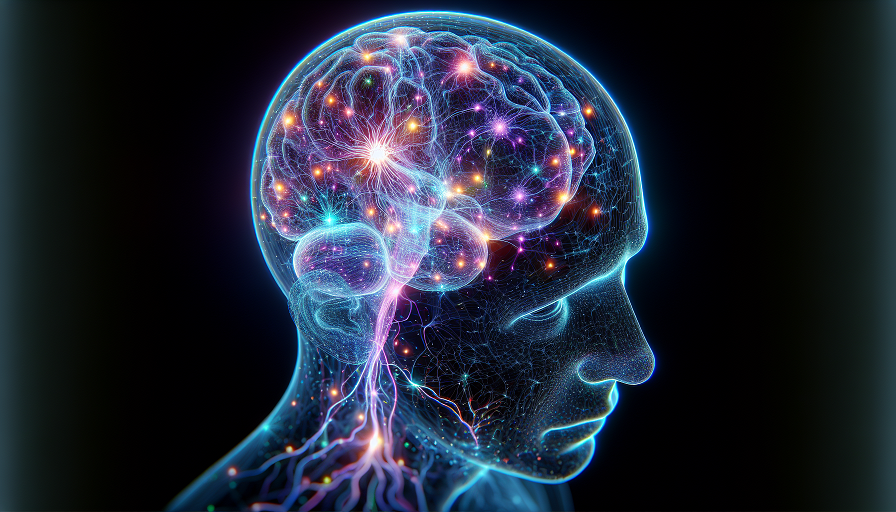
Yes, meditation can physically reshape the brain by increasing gray matter density, strengthening neural connections, and enhancing regions involved in attention, memory, and emotional regulation. Neuroimaging studies confirm that consistent meditation practice leads to measurable structural and functional changes in the brain.
Contents
- The Science of Neuroplasticity
- Brain Regions Changed by Meditation
- Evidence from Neuroscientific Studies
- Types of Meditation and Their Effects
- How Meditation Reshapes the Brain
- Psychological Benefits of Brain Changes
- How Quickly Can Meditation Reshape the Brain?
- Limitations and Considerations
- Complementary Practices That Boost Effects
- The Bottom Line
The Science of Neuroplasticity
Neuroplasticity is the brain’s ability to reorganize itself by forming new neural connections. Meditation leverages this ability by repeatedly engaging circuits tied to focus, awareness, and compassion, which strengthens and reshapes those pathways over time.
Brain Regions Changed by Meditation
- Prefrontal cortex: Thickens with practice, improving focus, planning, and decision-making.
- Hippocampus: Gains gray matter density, enhancing learning and memory.
- Amygdala: Shrinks in size and activity, reducing stress and fear responses.
- Insula: Grows stronger, increasing self-awareness and emotional intelligence.
- Anterior cingulate cortex: Develops better connectivity, supporting attention and conflict resolution.
Evidence from Neuroscientific Studies
- A Harvard study using MRI scans found that eight weeks of mindfulness meditation increased gray matter in the hippocampus and reduced density in the amygdala.
- Research in Frontiers in Human Neuroscience showed long-term meditators had thicker cortical regions linked to emotional regulation.
- Another study in Psychiatry Research: Neuroimaging confirmed structural changes after just two months of meditation training.
Types of Meditation and Their Effects
- Mindfulness meditation: Enhances attention, memory, and self-awareness by repeatedly anchoring focus on the breath or sensations.
- Loving-kindness meditation: Increases activity in regions tied to empathy and compassion.
- Transcendental meditation: Associated with reduced stress responses and improved relaxation.
- Focused-attention practices: Strengthen executive control and goal-oriented focus.
How Meditation Reshapes the Brain
The physical reshaping happens through several mechanisms:
- Gray matter increase: Sustained practice leads to thicker, denser regions tied to learning and memory.
- Synaptic strengthening: Repeated focus reinforces neural connections, making them more efficient.
- Reduced reactivity: Lower amygdala activity dampens the stress response, preserving long-term brain health.
- Connectivity improvements: Meditation boosts communication across networks like the default mode network (DMN), which governs self-referential thought.
Psychological Benefits of Brain Changes
- Better stress regulation: A calmer amygdala means fewer overreactions to challenges.
- Improved focus: Strengthened prefrontal circuits increase sustained attention and reduce distraction.
- Enhanced memory: Hippocampal growth improves both short- and long-term recall.
- Greater emotional balance: Stronger insula and cingulate cortex support empathy and resilience.
How Quickly Can Meditation Reshape the Brain?
Changes are measurable in as little as 8 weeks of regular practice. However, long-term meditators often show the most profound structural and functional differences, suggesting cumulative effects over years of consistent training.
Limitations and Considerations
- Benefits vary by individual; not everyone experiences the same structural changes.
- Short-term practice may produce subtle improvements, but long-term commitment is needed for deeper reshaping.
- Meditation is not a substitute for medical or therapeutic treatment but a complement to other approaches.
Complementary Practices That Boost Effects
- Yoga and movement: Combining meditation with mindful movement enhances connectivity and resilience.
- Breathwork: Intensifies the calming and focusing effects of meditation.
- Sleep hygiene: Ensures the brain consolidates the benefits of meditation practice.
- Nutrition: A brain-healthy diet (rich in omega-3s and antioxidants) supports neuroplasticity.
The Bottom Line
Meditation physically reshapes the brain by thickening regions tied to focus, memory, and empathy while shrinking stress-related structures like the amygdala. Consistent practice enhances neuroplasticity, making meditation a scientifically supported way to build long-term mental resilience and cognitive strength.

